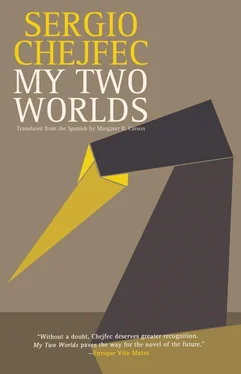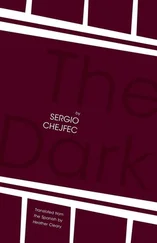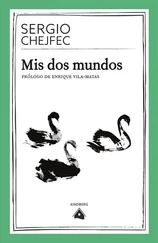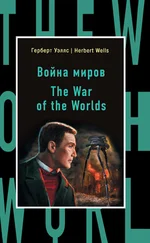In this sense, or maybe in another — and here I’d like to record my absurd and perhaps entirely useless desire to be neutral about this novel, which I so deeply admire— My Two Worlds still seems to me, months after having read it for the first time, the most complete walk I’ve taken through the ever-incomplete geography of the dramatic realm of the incidental, through the solitary geography of our fissures, through the deep geography of the hollows that are often doors to the unknown, to forgotten places that ignite our imagination and our driftlessness and even our birthday celebrations, which sometimes — on those rare occasions when evening falls in a special way — do not even require that there have been a time lived. Twilight is enough.
Only a few days are left before another birthday, and if I’ve decided to begin this way it’s because two friends, through their books, made me see that these days can be a cause to reflect, to make excuses, or to justify the years lived. The idea occurred to me in Brazil, while I was visiting a city in the south for two days. I couldn’t really understand why I’d agreed to go there, not knowing anyone and having almost no idea about the place. It was afternoon, it was hot, and I’d been walking around looking for a park about which I had almost no information, except its somewhat musical name, which by my criterion made it promising, and the fact it was the biggest green space on the map of the city. I thought it impossible for a park that large not to be good. For me parks are good when first of all, they’re not impeccable, and when solitude has appropriated them in such a way that solitude itself becomes an emblem, a defining trait for walkers, sporadic at best, who in my opinion should be irrevocably lost or absorbed in thought, and a bit confused, too, as when one walks through a space that’s at once alien and familiar. I don’t know if I should call them abandoned places; what I mean is relegated areas, where the surroundings are suspended for the moment and one can imagine being in any park, anywhere, even at the antipodes. A place that’s cast off, indistinct, or better yet, a place where a person, moved by who knows what kind of distractions, withdraws, turns into a nobody, and ends up being vague.
The day before I had attended a literary conference, and when it was over I walked through the plaza where the local book fair had been set up, in one of the city’s historic districts, I assumed, though many relics or landmarks now seemed definitively missing. People were walking slowly, crowding the thoroughfare because of their numbers. I must have been the only solitary walker that day, which luckily no one found strange, because families, groups of friends, or couples went on with their business as I strolled about. Earlier, as I was waiting in an empty room for the conference to begin, I’d read in the newspaper that every year, when the book fair takes place, the regular artisans move their stalls and tables to the adjacent streets. I don’t know why that information seemed important to me, and even more, why it stayed etched in my mind. (The following day, a few blocks from the plaza, I discovered the artisans’ temporary location, where they’d organized themselves by craft, as if protecting themselves from some danger.) Later, at the end of the panel, I didn’t ask any questions; I was, in fact, the first to leave the room, in search of a quick exit to the street. I rode down a glass elevator that looked onto a spacious interior garden, and when I finally left the convention hall, which seemed to have once been a government palace, I had no choice but to join the steady stream of people, like a fugitive trying to blend in.
The layout of that plaza was, as I said, in the old style: a rectangular block with two diagonal and two perpendicular lines that meet at the center, where there’s a statue. Despite such a simple design, all the same the moment soon arrived when I felt lost, probably because of the multitudes, to which you’d have to add the dense foliage and the nighttime shadows. I found myself stationed from time to time in front of the same booths; in reality there were only a few offering any titles that aroused my curiosity, which was weak in any case, and only after peering at the tables between the shoulders of an army of onlookers did I realize that I’d already been there, and had of course stopped in front of the same books. But though I sensed a few areas remained to be covered, I wasn’t sure which ones I’d already visited. And so I joined the throngs once more and let myself be carried by the flow. I remember that as I walked, the repetition of the strands of incandescent lights made me feel drowsy, just as in some movies. At the rear of the plaza, keeping in mind the orientation of the central statue, and on a short passageway that led to several public buildings, the food stands for the book fair had been set up, and these were also mobbed. Depending on the breeze, the odors from the burners, generally of fried foods or rancid oil, wafted over; at times when I raised my eyes I could see columns of smoke billowing through the strands of lights and the fringed edges of the awnings. Anyhow. I should say that it was this sensation of being hemmed in by the incessant swarm of people that led me to think of the existence of a park I’d like to visit. It would be just compensation, I thought.
One consults the map of the first city that comes to mind and everything seems accessible: one needs only to obey the street plan. But on the afternoon I’ve been talking about, reality, as is almost always the case, turned out to be different. The retaining walls of the elevated streets, the access roads and overpasses, the ramps for pedestrians or those exclusively for cars — all of them prevented me, at each moment and in different ways, from leaving behind the point I’d chosen downtown for the sole purpose of continuing onward to the park. On the other hand, if I tried to take the long way around, I’d risk getting lost or, even worse, would spend the rest of the day meandering through indistinguishable and unavoidably sad streets; for if the map had proved useless in showing me the shortest way, it was absurd to follow it in taking a longer one.
On one side I had the grounds of a gigantic hospital, like those of years ago, with enormous pavilions and endless gardens. An overpass rose before me, with ramps and streets that didn’t seem to go anywhere in particular. And on the other side, an express lane cut the grid of the streets in two. I was, nevertheless, alone in my indecisiveness in this part of the world, because the rest of the people were coming and going, sure of their direction and moving with remarkable ease. I noticed that the more I looked at the map, the less I understood it; what’s more, because my eyesight is poor and my glasses aren’t strong enough, I must have looked pathetic, since I had to put the map practically against my face in order to see it above my eyeglasses. Every now and then I raised my eyes to the street, hoping to find some point or street sign that would orient me, but I immediately understood that the effort was in vain and I looked down again, spending more valuable time trying to find myself once more on the map. I was like this for a good while. I realized that my sense of direction, which had always been a secret source of pride, and was, in fact, almost the only thing I could brag about, had suddenly abandoned me as well.
And curiously, due perhaps to the never-ending flow of people at my side, no one stopped to offer me any help or to ask if things were all right. I felt invisible, as if I had hidden my face and didn’t want to talk to anyone. Then someone went, “ Psst ,” toward where I was standing. It was a street vendor who had to pick up a heavy load and put it in a two-wheeled cart. I thought he was calling me and I looked at him, half-curious and half-hopeful: he probably took pity on me and was waving me over because he didn’t want to leave his merchandise unattended. But it turned out he was calling someone else, a young man passing behind me, whose help he wanted to lift the load. So you have to ask for help, I thought. . I began to imagine the aerial view of that part of the city, probably similar to what was depicted on the map, my silhouette motionless while people and cars continually passed beside me. I don’t know why, but that physical image of my solitude or helplessness made me lose patience. Moved by an unjustifiable impulse, I began to rotate the map in order to see it from another angle, and even turned it like a set of handlebars; maybe that would clear things up, I thought. The aerial observer was circling, I supposed, and that’s why the map revolved as it did.
Читать дальше












